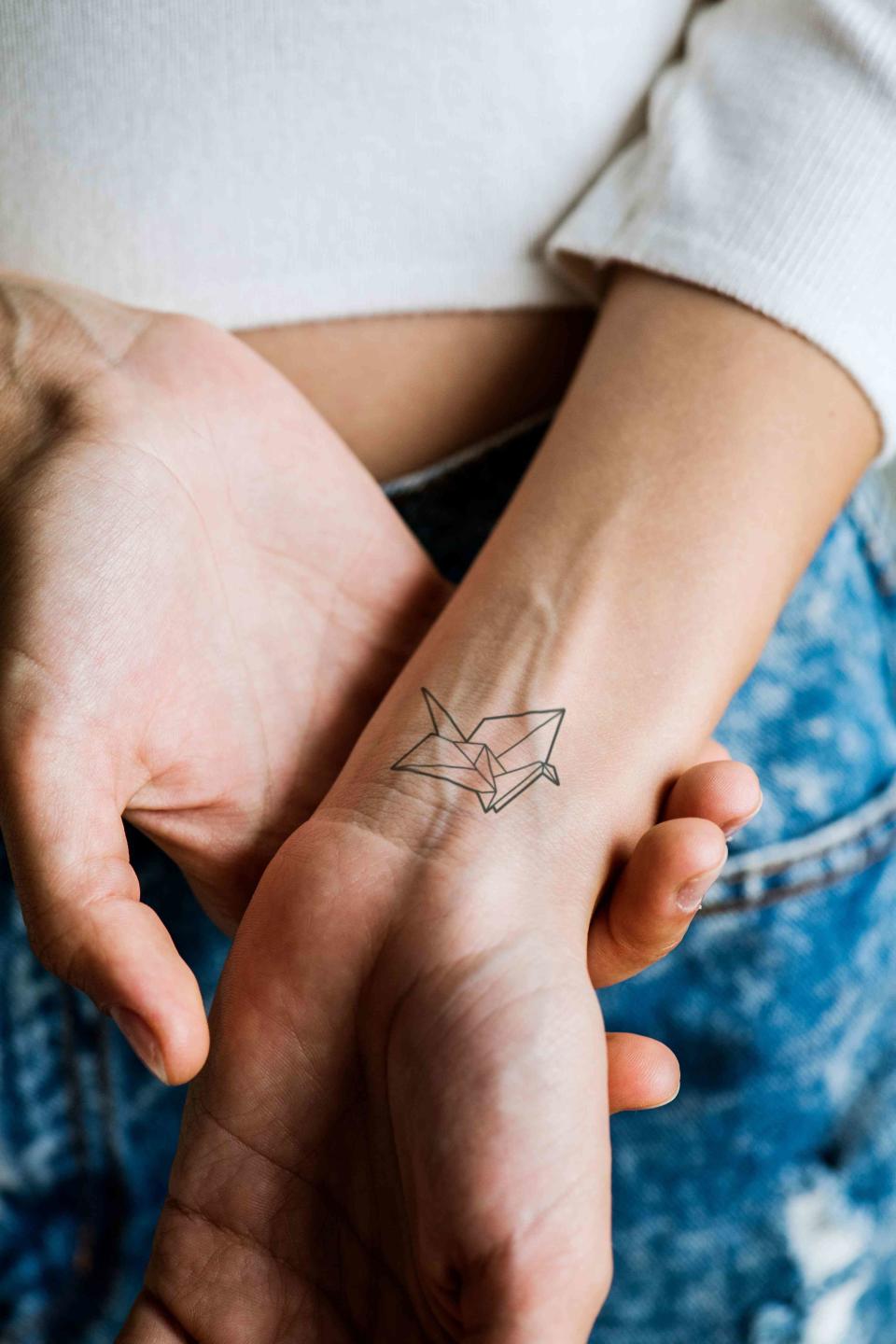How to Care for a New Tattoo
Healing correctly is the key to lasting, vibrant color.

Getty Images
You spent forever dreaming up your new tattoo design, figuring out where to put it, and searching for the right tattoo artist to bring your body art to life. Another crucial step that you don’t want to forget? How to care for your new tattoo.
After all, “tattoos are superficial wounds,” says Michelle Henry, MD, a board-certified dermatologist and founder of Skin & Aesthetic Surgery of Manhattan. “Prioritizing tattoo aftercare is important so that it doesn’t get infected or lead to scarring,” she says. It’s also essential to ensure the tattoo ink settles into your skin properly and looks its best.
Related:What Are Fingernail Tattoos? Here's Everything to Know About 2023's Hottest Ink Trend
Much like other wounds on your skin, the typical healing process after a new tattoo can take up to several weeks, depending on your immune response to wound healing and the size of your tattoo. The first two weeks after getting a tattoo is critical in terms of caring for your skin. If the redness doesn’t improve over the next few days or you notice swelling, blood, or bumps, consult your dermatologist immediately. Luckily, proper tattoo aftercare is straightforward; you just need a few basics to minimize complications.
Keep It Covered
Immediately after getting your new tattoo, your tattoo artist will cover the area with a wrap before you leave. “I prefer to use SecondSkin bandages for the first three days of healing. It’s better than a band-aid or a gauze because it’s more breathable, so it lets air get to the skin while protecting it,” says Maxx Starr, the co-owner of Fun City Tattoo in New York City. “The medical-grade adhesive is “also transparent, so people can still show off their tattoo immediately,” he adds. In addition, since it’s waterproof, you can still shower and do your normal routine.
Related:9 Tiny Cuticle Tattoo Ideas We're Copying From Celebs
Wash the Tattooed Area
You can take your covering off on the third day after gettingyour tattoo. “I tell clients to wash the area with a mild cleanser like Dr. Bronner’s Pure Castile Liquid Soap,” says Starr. To avoid irritation or a potential allergic reaction, “you want to make sure you’re not using products with any fragrance or active ingredients,” says Dr. Henry. Since you’re essentially treating broken skin, “it’s best to keep your skincare products very simple during the healing process,” she adds.
While you want to keep the area clean and bacteria-free, you don’t have to obsessively cleanse — just once or twice a day for the first two weeks should do the trick. “You don’t want to overwash your skin, or it’ll dry it out,” says Starr. As your tattooed skin heals, “avoid submerging your body in water whether that’s swimming or bathing” to reduce the likelihood of irritation or infection, adds Starr.
Moisturize, Moisturize, Moisturize
To calm redness (a normal part of the healing process, according to Starr) and reduce the chances of scabbing, give your freshly tattooed skin some extra love by hydrating it a few times a day. “A fragrance-free moisturizer with simple yet calming ingredients like ceramides can help make the scab softer and fall off on its own more readily,” says Dr. Henry.
Even if you moisturize regularly, some scabbing might still occur. Though it might be tempting, “don’t pick or peel at your scabs,” says Starr. Just like a regular wound, it might lead to scarring or infection and affect the tattoo's appearance.
Be Diligent About SPF Protection
Sun protection plays a significant role in caring for your tattoo. To reduce potentially fading your tattoo, “try to avoid both direct sunlight and water submersion for the first two weeks,” says Starr. But the reality is that it’s much harder to stay out of the sun. In that case, you could invest in loose-fitting, sun-protective clothing that covers the entirety of your tattoo.
If that’s not available, your skin health comes first: “Since chemical sunscreens can burn or sting broken skin, wear a mineral sunscreen with SPF 30 for daily use and SPF 50 if you are outside for more than an hour. These are the same guidelines even without a tattoo,” says Dr. Henry. Even after your skin has healed, prolonged sun protection still isn’t advised since UV rays cause fading. So, if you weren’t already wearing sunscreen regularly, apply (and reapply throughout the day!) to keep your ink in tip-top shape.
Related:How to Protect Your Tattoo and Keep It From Fading, According to Experts
For more InStyle news, make sure to sign up for our newsletter!
Read the original article on InStyle.


